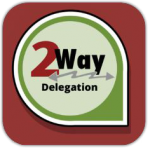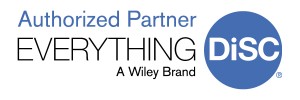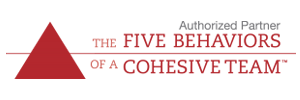Course Description
Emotional Intelligence is the capacity to recognize and effectively manage emotions in ourselves and with others. Emotional intelligence increases our ability to make effective decisions, build relationships, deal with stress, and cope with change.
Research has proven that our emotional intelligence (EQ) is more reliable in predicting success than our intelligence quotient (IQ). In this course, we explore the topic of EQ and how to develop our own EQ; thereby increasing our success with our career and relationships both inside and outside of work.
As prework, participants take the Bar-on EQ-i Inventory. This inventory is the first scientifically validated and most widely used EQ assessment in the world. The EQ-I 2.0 Inventory examines an individual’s social and emotional strengths and weaknesses. After completing the inventory, participants will receive a comprehensive report based on their online EQ-I 2.0 Inventory results. They will then utilize the results of their report during the session.
The course begins by defining EQ and identifying why EQ is important to organizational, team, and personal success. Participants view a recorded presentation by Dr. Daniel Goleman, a psychologist and founding researcher of EQ. During this presentation, Dr. Goleman explains how emotions affect the brain, giving participants a fundamental understanding of the physiology of emotions.
Next, the four-part Emotional Intelligence Model is introduced and becomes the structure for the day’s activities. The two skills emphasized in the model are personal and social skills.
Continuing with the Emotional Intelligence Model, information is shared and activities are conducted that support the awareness and growth of two key personal skills: Self-Awareness and Self- Management. During the Self-Awareness portion of the course, participants learn to recognize feelings as they happen. While exploring Self-Management, they learn to handle those feelings effectively and appropriately.
The two key social skills in the Emotional Intelligence Model are Social Awareness and Relationship Building. In the Social Awareness segment of the course, participants increase their ability to accurately pick up on emotions in other people, thereby gaining a better understanding of their behaviors. When learning about Relationship Management, participants further develop their ability to use the greater awareness of both their own emotions and the emotions of others to manage interactions successfully. Small- and large-group discussions and activities help participants to explore and gain a better understanding of these two skills.
The course ends with participants creating an EQ development plan where they identify both personal changes they wish to make and the behaviors needed to make these changes. To further strengthen their development, they then share their plan with a partner who will provide feedback and final insights.
Objectives
After completing this course, you will be able to:
- Define emotional intelligence and how it relates to personal and organizational success.
- Apply tools to increase personal skills: self-awareness and self-management of personal emotions.
- Analyze and interpret online assessment results from the EQ-I 0 Inventory.
- Apply tools to increase social skills: recognizing the emotions in others and responding to those emotions.
Assessment
EQ-I 2.0 Inventory (Author Reuven Bar-On, PhD)
Duration
This course has an 8-hour agenda.
Class Size
This course is designed for 12 participants.
Below is the course outline with objectives and timing for an 8-hour agenda.
| Objective and Topic | Timing | Elapsed Timing |
| Welcome and Icebreaker | 10 min | 10 min |
| Objectives and Agenda | 5 min | 15 min |
| Introductions | 10 min | 25 min |
| Objective: Define emotional intelligence and how it relates to personal and organizational success. | ||
| Worksheet: Build Your Emotional Vocabulary | 5 min | 30 min |
| Definition of Emotional Intelligence | 5 min | 35 min |
| Emotional Intelligence: Video Scene | 5 min | 40 min |
| Benefits of Emotional Intelligence | 10 min | 50 min |
| Four Skills of Emotional Intelligence | 10 min | 1 hr |
| Objective: Apply tools to increase personal skills: self-awareness and self-management of personal emotions. | ||
| Personal Skills · Subscales with Self Awareness | 5 min | 1 hr, 5 min |
| Emotional Self-Awareness | 10 min | 1 hr, 15 min |
| Break | 15 min | 1 hr, 30 min |
| Activity – What Am I Feeling? | 20 min | 1 hr, 50 min |
| Partner Activity | 20 min | 2 hr, 10 min |
| Self-Management § Subscales within Personal Skills: Self-Management | 10 min | 2 hr, 20 min |
| Impulse Control: Emotions and the Brain | 15 min | 2 hr, 35 min |
| Stress Tolerance: Reframing | 25 min | 3 hr |
| Objective: Analyze and interpret online assessment results from the EQ-I 2.0 inventory. | ||
| EQ-I 2.0, including break | 1 hr | 4 hr |
| Lunch | 1 hr | 5 hr |
| EQ-I 2.0, continuation | 30 min | 5 hr, 30 min |
| Objective: Apply tools to increase social skills: recognizing the emotions in others and responding to those emotions. | ||
| Social Skills · Subscales with Social Sills: Social Awareness | 15 min | 5 hr, 45 min |
| Social Awareness: Empathy | 5 min | 5 hr, 50 min |
| Empathy: The Faces | 5 min | 5 hr, 55 min |
| Responding with Empathy | 30 min | 6 hr, 25 min |
| Action Planning | 30 min | 6 hr, 55 min |
| Break | 10 min | 7 hr, 5 min |
| Relationship Management · Subscales with Social Skills: Social Relationship | 5 min | 7 hr, 10 min |
| Relationship Management: Expressing Gratitude | 10 min | 7 hr, 20 min |
| See the Background Behind the Blemish | 5 min | 7 hr, 25 min |
| Perspective Thinking: What Is This Picture? | 5 min | 7 hr, 30 min |
| Relationship Building: Perspective Taking | 15 min | 7 hr, 45 min |
| Catching Oneself | 10 min | 7 hr, 55 min |
| Summary and Action Planning | 5 min | 8 hr |
EQ-I 2.0
Emotional Quotient-Inventory
Description
The Emotional Quotient Inventory (EQ-I 2.0) is the first scientifically validated and most widely used emotional intelligence assessment in the world. Based on more than 20 years of research worldwide, the EQ-i examines an individual’s social and emotional strengths and weaknesses.
Respondents self-report on their life and workplace performance in 15 key areas of emotional skill that have been proven to contribute to proficiency in complex business activities such as conflict resolution and planning. By identifying the areas that need improvement, the client can immediately begin developing those areas. At the same time, areas where the client excels can be leveraged to their full potential to maximize effectiveness in daily tasks.
Self-Perception Composite
- Self-Regard
- Self-Actualization
- Emotional Self-Awareness
Self-Expression Composite
- Emotional Expression
- Assertiveness
- Independence
Interpersonal Composite
- Interpersonal Relationships
- Empathy
- Social Responsibility
Decision Making Composite
- Problem Solving
- Reality Testing
- Impulse Control
Stress Management Comosite
- Flexibility
- Stress Tolerance
- Optimism


